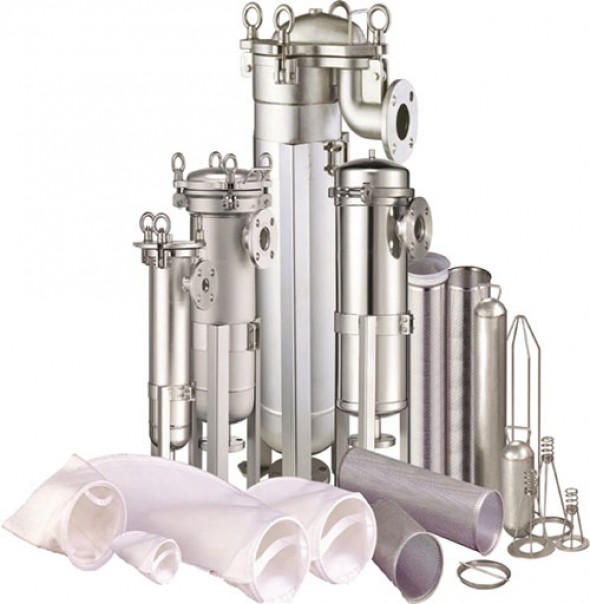Washing liquid filtration

Washing liquid filtration for component washing systems
Modern parts manufacturing processes in the automotive industry pose the highest challenges to filtration. The tolerances of the production parts are getting smaller and smaller. To ensure that engines, gearboxes and electronic components, for example, function within these tolerances in the long term without any faults, manufacturers must constantly optimise production processes and keep quality requirements and regulations up to date.
You can read more about component cleanliness measurement for quality assurance here.
At the end of the production process of the individual add-on or purchased parts, there is often a washing equipment to ensure cleanliness.

The simplest and most cost-effective variant in the operation of a component washing system is filtration with bag filters. Bag filters have an efficiency of approx. 50%, which means that only every second particle of the specified filter fineness can be captured by the filter.
Filter bags can be made of different materials such as polypropylene or polyester for standard applications. Applications requiring higher chemical compatibility or temperature, i.e. those deviating from the standard, can be covered with nylon, PTFE or stainless steel bags.

Nowadays, adapting to the latest standards, the market also offers bag filters with higher separation efficiency. The bags have the typical bag design, but can have multiple layers and achieve up to 99.9% separation efficiency.
In order to multiply the filter area as well as the efficiency, so-called ‘IMEX bag filter retrofits’ can be used in the same housing. These are characterized by a high efficiency in addition to a multiple of the filter area.
Downloads:
IMEX Pleated Bag Filter Element
Key advantages of this combination are:
- Better particle separation in the washing liquid
- Longer service life - based on delta P (pressure difference) - thus less downtime of the washing system
- Efficient filtration of the liquid improves the quality of purity class measurements
- Due to efficient filtration of the liquid, longer service life of the washing liquid = longer liquid exchange intervals.
In multi-chamber washing systems, automatic backwash filters can also be installed for some of the washing stages. The biggest advantage of these filter systems is that they start the cleaning process fully automatically at a set value after their own pressure difference measurement and automatically carry it out. The cleaning of the filter has no influence on the uninterrupted operation of the washing system.